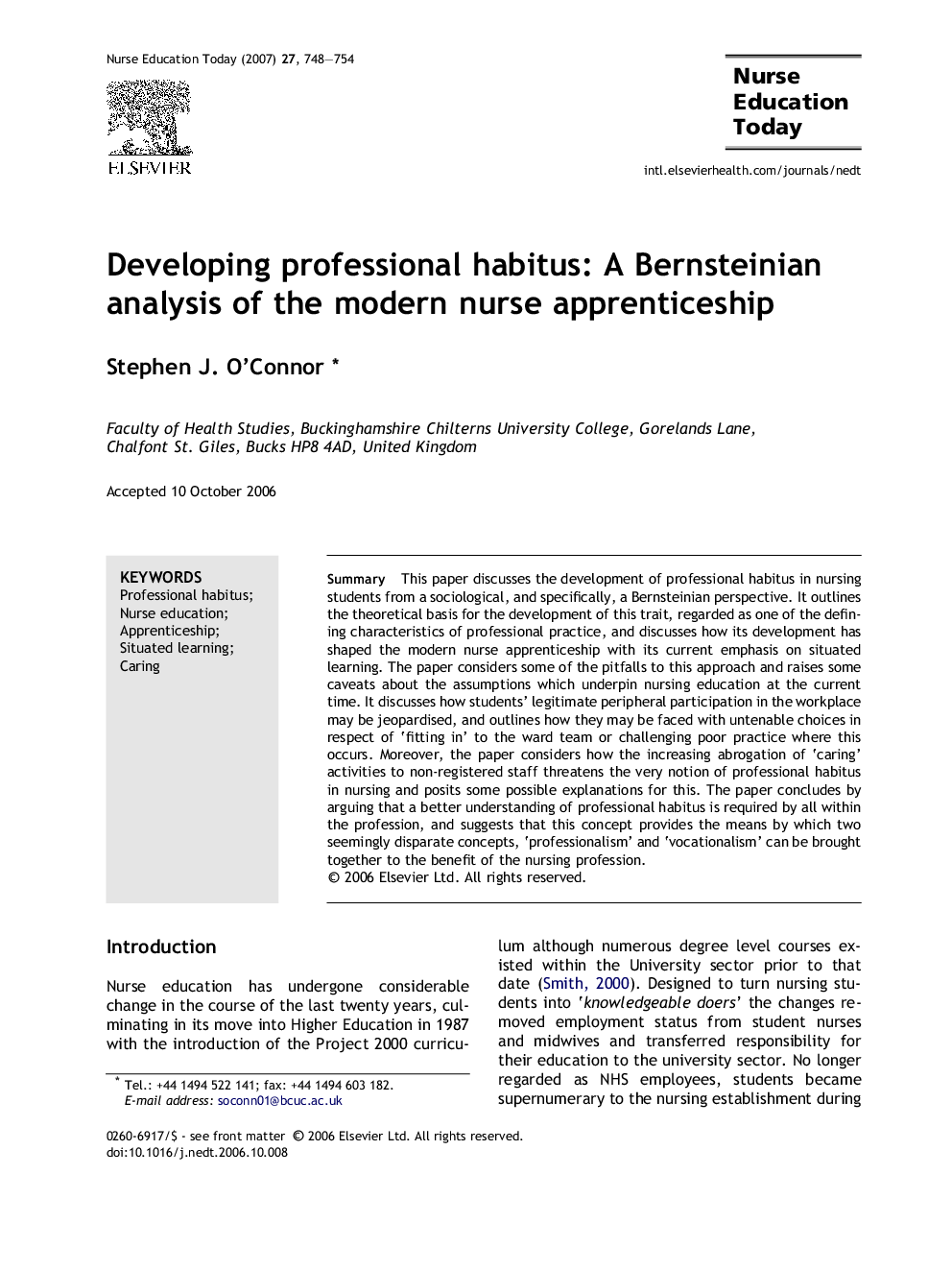| Article ID | Journal | Published Year | Pages | File Type |
|---|---|---|---|---|
| 369501 | Nurse Education Today | 2007 | 7 Pages |
SummaryThis paper discusses the development of professional habitus in nursing students from a sociological, and specifically, a Bernsteinian perspective. It outlines the theoretical basis for the development of this trait, regarded as one of the defining characteristics of professional practice, and discusses how its development has shaped the modern nurse apprenticeship with its current emphasis on situated learning. The paper considers some of the pitfalls to this approach and raises some caveats about the assumptions which underpin nursing education at the current time. It discusses how students’ legitimate peripheral participation in the workplace may be jeopardised, and outlines how they may be faced with untenable choices in respect of ‘fitting in’ to the ward team or challenging poor practice where this occurs. Moreover, the paper considers how the increasing abrogation of ‘caring’ activities to non-registered staff threatens the very notion of professional habitus in nursing and posits some possible explanations for this. The paper concludes by arguing that a better understanding of professional habitus is required by all within the profession, and suggests that this concept provides the means by which two seemingly disparate concepts, ‘professionalism’ and ‘vocationalism’ can be brought together to the benefit of the nursing profession.
